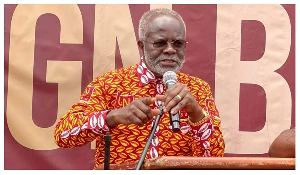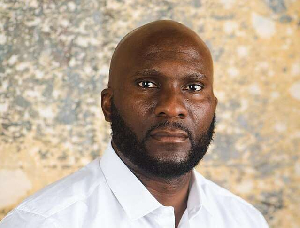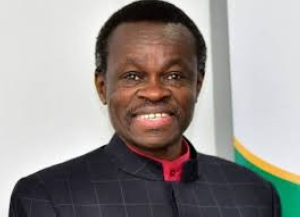By Bernard Asubonteng
Admittedly, people react, internalize, or externalize events quite differently owing to various underlying factors that can range from psychological, social, cultural, and the like. So it’s not surprising that many people often expressed anger, shock, disbelief, sadness, or happiness whenever an out-of-the-ordinary or unexpected circumstances happened.
A case in point is the FIFA’s monthly rankings of national soccer teams. More often than not many Ghanaians and a sizable number of soccer fans alike expressed strong opinions or feelings soon after FIFA announced which national soccer teams have climbed or fallen on the body’s discredited and inaccurate monthly rankings. In many cases, these expressions usually bordered on shock or disbelief, especially among African soccer fans, including many Ghanaians.
For example, the Ghanasoccernet.com news account recast by the Ghanaweb.com said “Ghana has shockingly dropped 13 places in the latest FIFA world rankings to 34th place and are down to 4th in Africa…” (Ghanaweb.com, Thursday, 13 February 2014). With all due respect to some soccer fans out there, why do you get “shocked” whenever FIFA come out every month with these shams and jokes called rankings? Seriously, do these so-called rankings by FIFA mean anything sensible to you at all? Do you believe these rankings accurately capture or reflect the actual performance of the teams they’re supposed to rate? For me, the answer to this last question is an emphatic no!
As I have previously explained on the Ghanaweb’s platform, including on my own blog (www.globalpulpit.com), FIFA’s overall organizational culture operates in the thick cloud of corruption and favoritism. In a shady atmosphere like FIFA’s, sheer ineptitude and old-boyism attitudes, masquerading as competence, always seep through the organization’s activities. In fact, a critical reappraisal of FIFA’s consistently incoherent monthly rankings reinforces the foregoing observation.
Do not let this misleading monthly ranking gets the better part of your feelings or how you perceive your team, because FIFA will always do what FIFA does best: psychologically plays favoritism at the expense of other teams. Keep in mind the World Cup tournament is almost around the corner.
Within the so-called soccer experts’ circle, FIFA included, there are certain teams or countries considered “favorites” to win the World Cup scheduled to be held Brazil this coming summer. As presumed winners or favorites even before any team kicks the ball in Brazil, it shouldn’t surprise anyone that FIFA is resorting to its usual spurious tricks.
Recall that close to the 2006 World Cup games held in Germany, FIFA had ranked the Czech Republic so high that all the soccer pundits had predicted debutant Ghana’s crushing defeat at the hands of the Czech Republic in their World Cup opening match. History now knows what the outcome between the highly-rated Czechs and lowly-ranked Ghana’s encounter turned out to be.
So, as we head close toward the World Cup events, FIFA’s psychological tactics at this point is to rate many of the European national teams and some of the South American teams so high on its ranking scale. By so doing, it will put a fear of God into all those teams, especially from Africa, who may likely put up stubborn opposition to the FIFA’s favorites teams during the games.
On top of that, low rankings close to the beginning of a major soccer fiesta normally tend to have demoralizing effects on the teams’ psychological mindset if the affected players are not pushed to shake off whatever inferiority complexes which come with these misleading rankings.
FIFA’s latest rankings have about 6 European nations, comprising Germany and Portugal (Ghana’s opponents) placed among the first top ten on the world’s soccer body list ratings. History, they say, repeats itself. FIFA will keep repeating the same old psychological tactics as it has been doing over the decades. Like the proverbial pathfinder, FIFA doesn’t know or doesn’t want to believe that the path it has charted over the years is still crooked.
In part, it may be that, from theoretical point or on paper, FIFA’s ranking model or formula looks almost perfect. However, if we take a pragmatic look at the model, it is obvious it doesn’t reflect realities on the ground.
In many ways, FIFA’s ranking system is analogous to a country that insists that because its GDP is strong, then the contours of that economy is also in strong shape; never mind that the majority of the working class may be struggling to make ends meet. In other words, what does good-looking statistics or abstract theories mean to an average worker if the economy cannot provide adequate support after long periods of hard work?
Simply put, FIFA can come up with all kinds of rankings based even on Einsteinium mathematical formula, as long as the models do not correspond with the realities pertaining to the current or actual performance of the teams, the credibility of those rankings would still be suspect and a psychological mind game at best.
Finally, there is a proverb that whenever you experienced that an insect is biting you, look no further than within your own clothes first. Many of us lament about how the Europeans or those in the West do not accord African football the respect it deserves despite the continent’s remarkable inroads and impact on global soccer. Respect as we all know it isn’t one-dimensional phenomenon; it is a two-way street. If you want respect, you show respect to yourself first.
Africa soccer administrators, like their political counterparts, are not only sorry organizers bereft of creative ideas, but also they are not serious about developing all these huge soccer talents in Africa. No wonder others take Africa soccer for granted all the time. It is mind-boggling in this 21st century to see the CAF almost always copycatting whatever FIFA does. For instance, what practical sense does it make for CAF to rank Cote d’lvoire higher than Nigeria—the current CAF African national team champions? Is it because Cote d’lvoire ranks the highest among all the African teams in FIFA’s latest rankings? If everything FIFA does hold sway for CAF, then what is the need for the African Nations Cup competition? African soccer leaders, especially Issa Hayatou and his cohorts, are a disgrace to the continent because they continue to let down Africa football.
In the midst of all these lack of vision and direction from the soccer leaders, the individual players are representing Africa to the best of their abilities. For this preceding reason, I will never be worried about FIFA’s discredited and incoherent rankings. I don’t know about you.
-----------------------------------------------------------
Bernard Asubonteng is a media analyst and writer based in Atlanta, GA. He can be reached at: asubonteng@globalpulpit.com
Sports Features of Sunday, 16 February 2014
Source: Asubonteng, Bernard












